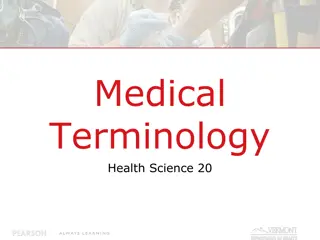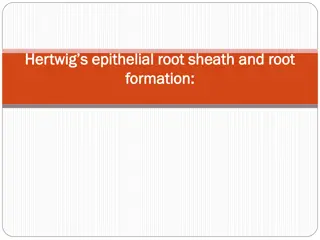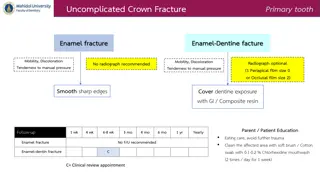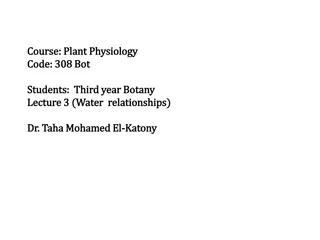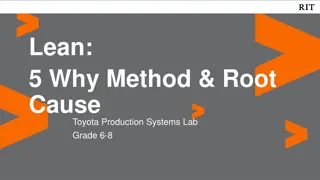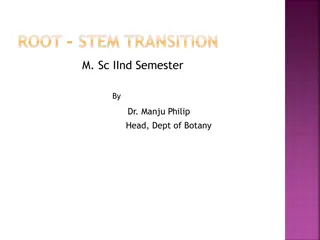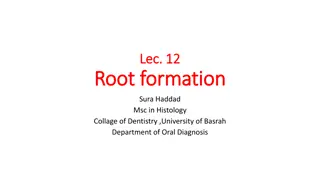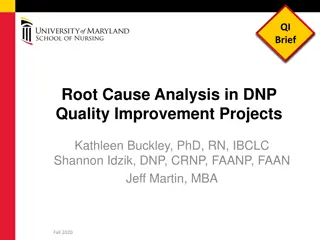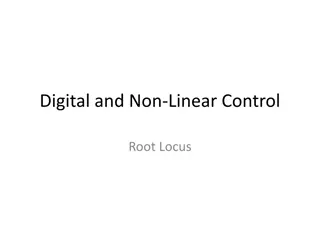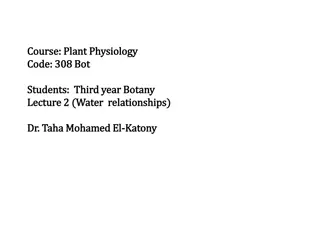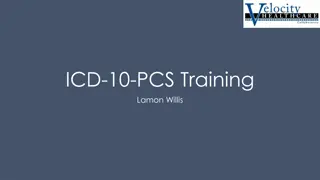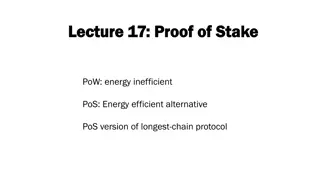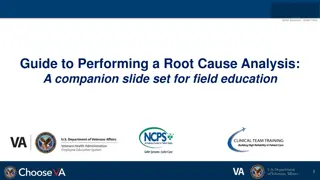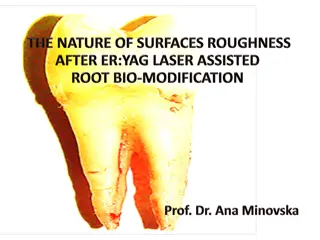Advancements in ROOT Framework: Communication Strategies and Technical Updates
Explore the latest developments in the ROOT framework, including new compression algorithms, parallel processing enhancements, shared pointer support, and improvements in thread safety and performance. Learn how to effectively communicate project results and updates through workshops, conferences, release notes, and online forums. Discover the push towards efficient I/O operations and optimization techniques within ROOT to enhance user experience and data handling.
Download Presentation

Please find below an Image/Link to download the presentation.
The content on the website is provided AS IS for your information and personal use only. It may not be sold, licensed, or shared on other websites without obtaining consent from the author.If you encounter any issues during the download, it is possible that the publisher has removed the file from their server.
You are allowed to download the files provided on this website for personal or commercial use, subject to the condition that they are used lawfully. All files are the property of their respective owners.
The content on the website is provided AS IS for your information and personal use only. It may not be sold, licensed, or shared on other websites without obtaining consent from the author.
E N D
Presentation Transcript
2018 I/O POW PH. CANAL, B. BOCKELMAN, D. PIPARO, JAKOB B., J. PIVARSKI, Z. ZHANG, O. SHADURA
HOW CAN WE COMMUNICATE THE RESULTS OF THIS WORK ITEM? Announcement in ROOT I/O Workshops, ROOT Planning meeting and conferences (CHEP, ACAT, ROOT User s Workshop) Release notes, Post on the forum, tutorials We ought to be (even more) proactive in also presenting these results in experiment software weeks and similar fora.
a) LZ4 becoming the default compression algorithm, Oksana, .25 FTME Faster for small size penalty Mostly individual analysis that will see immediately speed-up In the next few days: need new tagged release of v5.34, v6.10 and v6.08. b) Parallel unzipping, Zhe, 1 FTME Allow to use spare cores. Alternative to IMT GetEntry. For individual analysis in particular those now yet use TDF or multi-thread explicitly. Completed. c) Support shared_ptr, Danilo, 1.0 FTME Clarify object ownership, essential component of v7 For all users including ROOT v7 developers. Blocker for v7 and some experiment code improvement.
d) Improvement to thread-safety and performance, including making the ROOT's RecursiveRemove feature completely thread safe and performant. Philippe, 2 FTME Necessary for correct (and speedy) functioning of ROOT multi-thread features (TDF) For all users of ROOT in multi-thread environment Blocker for wide spread adoption of ROOT multi-thread features (TDF) e) Parallel Buffer/Tree merger: Task oriented, performance. Guilherme, 3 FTME Improve performance of multi-thread writing of TTrees, improve coordination with TBB frameworks. For framework developers and users, TDF users, etc. About to be adopted by CMS already seeing (new) bottleneck in some cases.
f) Bulk I/O: put in place general framework, add first application/usage Brian, 1 FTME Note also Bulk I/O <-> TDF in the Parallel Analysis Plan. Much faster than regular I/O For TDF, Framekwork developers. Already known to be faster and already mock-up (uproot) in the wild. g) TTree -> Bulk I/O -> NumpyArray Jim, 1 FTME Essential component of fast connection between ROOT I/O and Python World. For users of python tools Growing demand for use of python tools (and consequent translation layers )
h) Update to OptimizeBasket (one basket per). Brian, .5 FTME Improve run-time and compression of TTree Clusters. For potentially all users of TTree. Weaknesses of OptimizeBasket unaddressed for years. i) Skip offset array in TBasket when it is redundant, including for TLeafElement and unsplit STL collection. Extent to as many case as possible. [Reduce file size] Brian, .75 FTME Reduce data size of ROOT files with no data loss. For all users, , in particular for CMS new data formats Introduce ways to allow nicely forward-incompatible change in TBasket.
j) Investigate Factoring out compression-dictionary from TBasket to TBranch, using Google Zstd there is a potential of being as fast as lz4 and have lzma level compression. [Potential to gain space *and* time and in large set of CMS use cases] Oksana, 2 FTME Potential to gain significant space and time. For everybody Availability of Zstd and other new compression library/ies k) Improve performance of TTreeReader/Proxy Axel .5 FTME Bottleneck in TDF. For all users of TDF Makes TDF looks not as good as it could.
TTREE/TFILE FOR V7: INITIAL PROTOTYPES Why is it needed: provide a thread-safe I/O offer modern C++ iterator/cursor interfaces to ROOT data sets offer a well-defined bulk I/O interface allow for arbitrarily nested split collections Perhaps: open the door to store time series data in ROOT (ALICE) Why now: I/O capabilities and interfaces are the foundation of other tasks, e.g. parallel histogram filling New column-wise storage formats/libraries are rising (e.g. Parquet, Arrow), ROOT should not fall behind in terms of performance/features. Time: Initial prototype: 2.5 months Who can use it: other ROOT code and ROOT users
m) Support for std::variant Axel, 1.5 FTME Modern version of C++ union which is actually streamable. For ROOT v7 and modern experiment frameworks. Blocker for many ROOT v7 features n) Improve performance of TBuffer[File] skipping virtual functions calls. Philippe, Sergey 1 FTME Improve run-time when reading/writing ROOT files. For all users of ROOT I/O Started separating Binary and Text StreamerInfoActions.
o) Investigate support for collection of std::array. Danilo, .5 FTME (then more for implementation) Complete support for std::array For data model needing collection of fixed size array Just added support for std::array outside of collections. p) I/O of interpreted classes Lukas, 1 FTME Avoid having to spell out all used class template instances, including internal ones. For experiment relying heavily on class template, including ROOT v7 Somewhat blocker for v7 (histograms)
q) I/O of interpreted collection. ** stretch goal, Unassigned, 2 FTME Allow streaming of ALL interpreted classes. For experiment relying heavily on class template, including potentially ROOT v7 Interpreted I/O partially supported (see earlier), v7. r) Double32_t improvements, customization of vector<Double32_t>, similar feature for integer. ** stretch goal, Unassigned, 1 FTME (Double) 2 FTME (Integer) Potential gain in file size For users interested in trading off (unneeded) precision for space.
s) Explore cost (or lack thereof) of byte-swap [and copy] vs memory-copy. Philippe, Brian 1.5 FTME Figure out whether changing the on-file format will bring significant performance improvement or not (lately we are leaning toward no). For potentially all users but even more or so those leveraging Block I/O Bulk I/O is about to be put in production and would benefit most. t) Support for std::optional Axel, 1.5 FTME Modern version of using a vector of 0 or 1 element. For ROOT v7 and modern experiment frameworks. part of C++17




